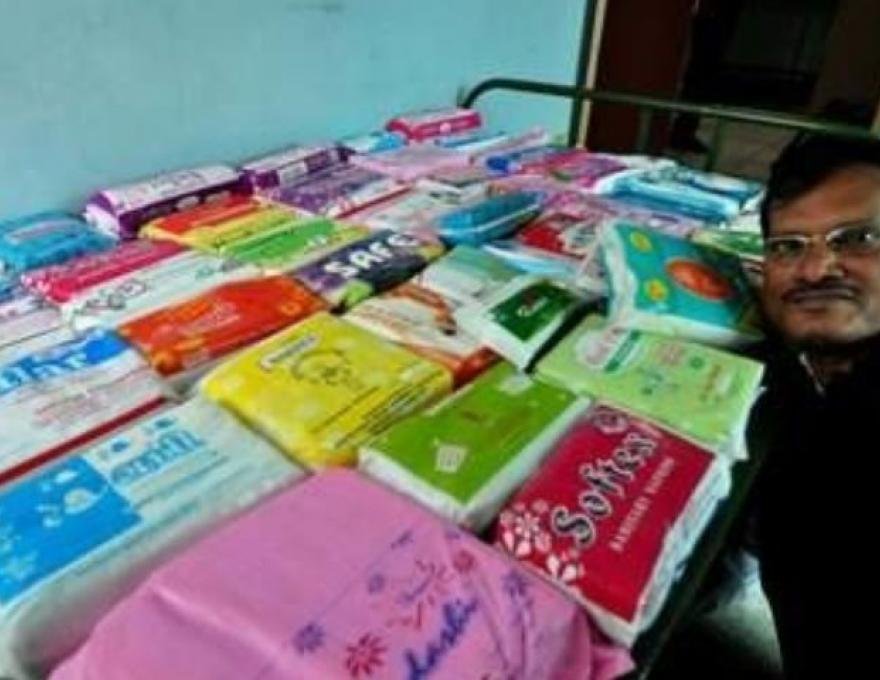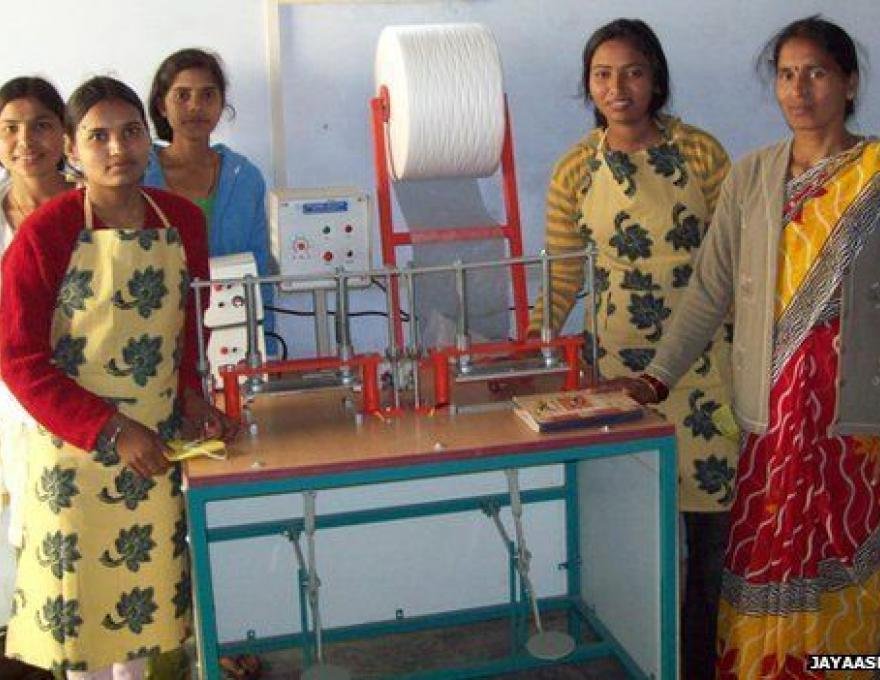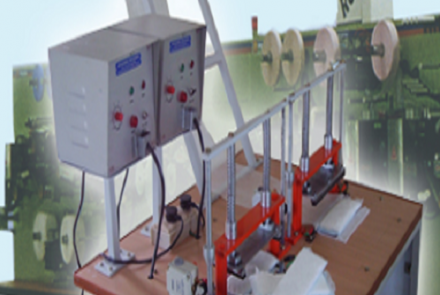In our country where population is touching 100 crores, the value of sanitary napkins used by women exceeds 1000 crores annually and it is increasing year after year. In India manufacturing of these sanitary napkins is in the hands of very few companies, mostly controlled by multi-nationals. The set of machines used are very expensive, the price of each set running in to crores. Most of the raw materials used are also imported. Even for middle class women, napkins sold in the market are becoming expensive.
ABOUT JAYAASHREE INDUSTRIES
One Indian social entrepreneur has given women from low income groups in India dignity, by making it possible for them to afford to buy sanitary towels and provide them with an income at the same time.
Arunachalam Murugananthamis the person who changed things.
From a poor background in the South of India, he created the world’s first low-cost machine to produce sanitary towels.
According to a report by market research group AC Nielsen, “Sanitary Protection: Every Woman’s Health Right”, 88% of women in India are driven to use ashes, newspapers, sand husks and dried leaves during their periods. As a result of these unhygienic practices, more than 70% of women suffer from reproductive tract infections, increasing the risk of contracting associated cancers.
Muruganantham re-engineered a sanitary machine, and in 2006 it won the award for the best innovation for the betterment of society from the Indian Institute of Technology, Chennai. Plus, he also received an Indian presidential award for innovation.
Currently more than 1300 machines made by his start-up company, Jayaashree Industries, are installed across 27 states in India and seven other countries.. This social entrepreneur sells his low cost machines directly to rural women through the support of bank loans and not-for-profit organisations. A machine operator can learn the entire towel-making process in three hours and then employ three others to help with processing and distribution.
Sanitary napkins produced in a “Small is Beautiful” model can deliver livelihood, hygiene and dignity to poor women, and help them strengthen society.
What problem or issue does the idea address?
-
Millions of women around the world cannot afford sanitary napkins, mainly because they’re manufactured using expensive machinery and thus priced at a premium. Such women resort to an older and cheaper alternative – a piece of cloth or rag. This is an unhygienic alternative and can cause vaginal infections, skin irritations and embarrassing stains in public. But by reducing the unit price of a napkin, Muruganantham’s model enables women to switch over to napkins – dignity must never be unaffordable.
-
A light-weight and voluminous product like the sanitary napkin introduces high transportation cost. This model allows local production and thus solves the problem.
-
Muruganantham’s model addresses the issue of rampant unemployment amongst the poor in rural, urban and semi-urban areas of all developing nations.
-
Overall, Muruganantham’s model offers livelihood, hygiene, dignity and empowerment to women all over the world. And it does so using a sustainable business framework.
PRODUCT OVERVIEW
While the concept of Ladies Self Help Groups (SHGs) has taken a firm root in our country, it has been observed that hard work is necessary especially in marketing. Failures of SHGs in some areas have also come to light.
For the SHGs, this new invention should be of great help run a successful business, since:
-
The investment is nominal
-
The product price will be affordable
-
The consumer market is huge and is continuously expanding
Quality sanitary napkins at affordable will also find a market among rural and lower middle class women who can discard their traditional method of using unhygienic cloth and switchover to these.
The SHGs, making these napkins will then have a repetitive market in their own areas which will enable them to expand their business enabling an upliftment in their lives. This concept of self-development can spread to all the 800 districts in the country where Ladies SGHs can be formed for making and selling these sanitary napkins enabling a mass scale upliftment of women in the country.
State Governments can also offer encouragement by permitting the sale of these inexpensive quality sanitary napkins in the ration shops, considering the hygienic aspect of women.
- KNG Pudur Rd, Coimbatore, Tamil Nadu
- jayaashreeindustry@gmail.com
- 90430 55128
- http://newinventions.in/





Add new comment